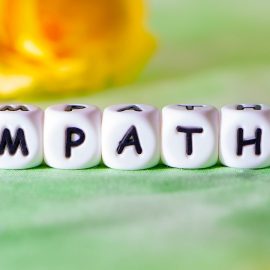

This article is an excerpt from the Shortform book guide to "Predictably Irrational" by Dan Ariely. Shortform has the world's best summaries and analyses of books you should be reading.
Like this article? Sign up for a free trial here .
Is there such a thing as too many options? How does having too much choice hold us back? How can we learn to commit to one option?
When you have too many options available to you, you become distracted and miss out on disappearing opportunities. There are three ways to stop wasting time on options and commit: narrow your options, consider your losses, and recognize your disappearing options.
Continue reading for tips on how to choose when you have too many options.
Why Having Too Many Options Distract Us From Opportunity
One part of human nature that holds us back substantially is our need to keep as many options open as possible. However, having too many options is irrational because keeping many options open distracts you from pursuing goals and causes you to miss out on disappearing opportunities. Perhaps you’re not advancing in your career because committing to your path would close you off from pursuing other careers. Or, you’re renting an apartment instead of purchasing a house because a house would “trap” you in your current location.
Choosing Which Options Deserve Attention
Though you’re hardwired to favor keeping your options open above all else, there are three significant ways you can stop wasting time on insignificant options and commit to decisions: narrowing your options, considering your losses, and recognizing and investing in your disappearing options.
1. Narrow Your Options
Recognize those options that realistically have very little opportunity or potential behind them and eliminate them from your thinking. Some of these options are insignificant and easy to dismiss—such as quitting clubs that feel like a waste of time or eliminating several little-enjoyed activities from your children’s schedules.
Other times, these options will be significant and difficult to choose between. Perhaps you’re interested in a new classmate, but are also staying in a fizzling-out relationship just in case it works out. Or, you’re interested in studying English, but are also interested in anthropology and biology—so you take classes across all three disciplines, not gaining enough credits to major in any. In these cases, you’ll have to put a great deal of thought and commitment into deciding which option is the best choice for you.
2. Consider Your Losses
Be careful to note that simply narrowing your options won’t solve your problem. Fewer options don’t make your decision easier—even with only two options before you, you’ll spend time trying to decide which option is the “correct” choice. When you find yourself trying to keep your options open as long as possible, it’s helpful to focus on what you’re losing by not making a choice. Perhaps loading your schedule with classes in three different disciplines means you miss out on interesting anthropology electives. Or, by refusing to leave your fizzling relationship, you’re missing out on happy memories with a new partner. This exercise demonstrates that while keeping many options open holds many opportunities, actually committing to one option is what grants you opportunity.
3. Recognize and Invest in Disappearing Options
At times, if you feel caught between options, it can be clarifying to examine them in the context of the long term—you’ll discover which options have a sense of urgency to them, and demand that you invest time and energy in them. You can more easily eliminate those options that don’t serve your best interests in the long term or can be revisited at a later time.
Some of these options are incredibly significant—such as choosing to spend more time at home with your children instead of gunning for a promotion at work. While both of these options feel important, keep in mind that while your children will soon be grown, you can likely work toward a different promotion in the future. Other times, you’ll have to examine your small, everyday options. Perhaps instead of staying involved in too many clubs and associations, you should choose the option of taking time to relax in your garden before the summer passes you by.
Trickiest of all are those options that may not feel that they’re disappearing at all. Perhaps you continually choose trying out different hobbies over spending time with your family, assuming they’ll still be around once your schedule becomes a little less hectic. But your schedule never becomes less hectic. A few years later you end up moving across the country, and the option to see your family whenever you want has disappeared.

———End of Preview———
Like what you just read? Read the rest of the world's best book summary and analysis of Dan Ariely's "Predictably Irrational" at Shortform .
Here's what you'll find in our full Predictably Irrational summary :
- How logic is failing you on a daily basis
- How to identify your irrational behaviors
- Why getting something for free can cause you to make bad decisions






